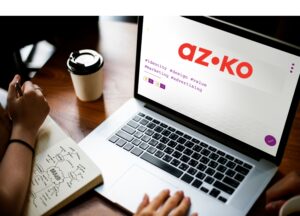PSE License: Data Protection or Administrative Burden?
The rapidly evolving digital landscape in Indonesia has brought significant attention to the country’s regulatory framework for digital businesses. Central to these discussions is the Private Electronic System Operators (PSE) license, mandated by Indonesia’s Ministry of Communication and Information Technology (Kominfo). While its stated purpose is to safeguard users’ data and enhance accountability, many businesses have voiced concerns over its practicality and potential drawbacks. This article delves into whether the PSE license serves as a tool for data protection or merely adds to the administrative burden for businesses operating in Indonesia.
Understanding the PSE License
The PSE license is a requirement for both domestic and foreign digital platforms operating within Indonesia. Introduced under Ministerial Regulation No. 5 of 2020 (MR 5/2020), the license aims to ensure compliance with local laws, protect consumer data, and foster a safer digital environment. Companies offering services such as e-commerce, digital payments, streaming platforms, and cloud storage are obligated to register as PSEs.
Key requirements for obtaining a PSE license include:
- Submitting company and platform details.
- Ensuring compliance with local server hosting regulations.
- Providing mechanisms for dispute resolution and data breach reporting.
- Allowing government access to specific data upon request.
Failure to comply can result in penalties ranging from fines to the suspension of services within Indonesia.
The Argument for Data Protection
Proponents of the PSE license argue that it is a crucial step toward aligning Indonesia’s digital governance with international standards. Here are some of the key benefits:
- Enhanced Consumer Protection With a PSE license, businesses are held accountable for how they collect, store, and process user data. This reduces the risk of data breaches and ensures consumers have greater control over their personal information.
- Legal Certainty for Digital Businesses By adhering to PSE requirements, businesses can operate with clear legal guidelines. This fosters trust between companies and their users, encouraging sustainable growth in the digital economy.
- Boosting Indonesia’s Digital Sovereignty The regulation emphasizes the localization of data storage and processing. This measure aims to keep critical data within Indonesia’s jurisdiction, thereby enhancing national security and sovereignty.
Challenges and Administrative Burden
Despite its noble intentions, the PSE license has faced criticism from industry stakeholders. Here are some challenges that have led to its perception as an administrative burden:
- Complex and Time-Consuming Registration Process Many businesses have found the PSE registration process cumbersome. The extensive documentation and compliance checks often lead to delays, making it difficult for smaller startups to focus on their core operations.
- Ambiguity in Guidelines Several aspects of MR 5/2020 remain unclear, especially concerning data localization and government access to information. This ambiguity has created uncertainty for businesses trying to comply.
- Increased Costs Compliance with the PSE license often requires significant investment in infrastructure, legal counsel, and administrative resources. For small and medium enterprises (SMEs), these costs can be prohibitive.
- Potential Overreach of Government Access One controversial aspect of the regulation is the provision allowing government access to user data under certain circumstances. Critics argue that this could lead to privacy violations and discourage foreign investment.
Balancing Compliance and Growth
The debate over the PSE license highlights the need for a balanced approach to regulation. While data protection is undeniably important, excessive administrative requirements can stifle innovation and deter investment in Indonesia’s digital economy.
Recommendations for Policymakers
- Streamlining the Registration Process Simplifying the application process and providing clearer guidelines can reduce the burden on businesses, particularly startups and SMEs.
- Ensuring Transparency Policymakers should clarify the scope of government access to user data and establish checks and balances to prevent misuse.
- Supporting SMEs Offering financial incentives, technical assistance, or grace periods for compliance can help smaller businesses adapt to the new regulations without compromising their growth.
- Engaging Stakeholders Regular consultations with industry players can ensure that the regulatory framework evolves in line with technological advancements and market needs.
Conclusion
The PSE license represents a significant step in Indonesia’s efforts to regulate its burgeoning digital economy. While its primary goal of enhancing data protection is commendable, the challenges associated with compliance cannot be overlooked. Striking a balance between regulation and innovation is essential to ensure that the PSE framework benefits both consumers and businesses. Policymakers and industry stakeholders must collaborate to create a regulatory environment that fosters trust, protects data, and supports sustainable growth in Indonesia’s digital landscape.
Still confused about PSE License?
Click the tombol on the right to Ask the Documenta Team











